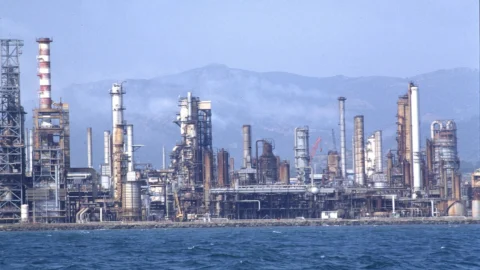I suggest waiting to evaluate the outcome of the Fincantieri-STX affair. The game isn't over, it's in progress. Another set will be played on Tuesday, and perhaps it won't be the last.
The Italian irritation is, obviously, completely justified, given that it denies itself to a leading Italian company in Europe (and also in the world, at least in some market niches, such as ocean liners, megayachts, offshore oil & gas platforms) , what was granted to the South Koreans, who in a few years led STX Europe to bankruptcy. And given that an agreement with the French government had already been reached and signed in the last weeks of Hollande's presidency: until proven otherwise, the principle of continuity of institutions is part of European legal culture (less, Trump teaches, than the USA one) and …. pre-contractual liability should also apply when the contractor is a state.
Also understandable is the Italian firmness in rejecting a 50/50 solution, which would not ensure effective management of a complex business, such as shipbuilding (a highly competitive market, complex productions that require the coordination of hundreds of subcontractors, very strict delivery terms, with heavy penalties in case of delays, complicated relationships with trade unions, etc.).
Other aspects have not been evaluated sufficiently so far:
- when St.Nazaire was sold to the Koreans, its order book was reduced to a flicker, now it has fleshed out, even if much less than that of Fincantieri and even if some orders have slim margins, and according to some experts they are even below cost (but also Fincantieri's margins are still modest, even if its order book is instead considerable, more than four times that of St.Nazaire);
- driven by Carnival, Fincantieri has built a joint venture with a leading company in China, and this fuels French concerns about the possible transfer of technologies and know-how;
- the thrust towards European consolidation is unstoppable and, although recovering, Saint Nazaire does not seem able to stand alone in the competition of Fincantieri and Meyer Werft (which acquired the Finnish shipyards of Turku again from STX);
- between the French of DCNS and the Italians of Fincantieri it is still advantageous to strengthen their industrial collaboration in the military naval sector, also by evaluating more structured solutions than those tested up to now;
- Fincantieri's interest in the Saint Nazaire basin remains strong due to its size which makes it suitable for the construction of giant tonnage ocean liners (the extension of Monfalcone would cost more than the acquisition of STX France and would impose a temporary halt in work in that basin, incompatible with respecting the times of the contracts in progress).
After showing their muscles, on both sides, the negotiation will resume. France has exercised the right of pre-emption (which is not a nationalisation) and at the same time affirmed that it does not want to bring the company back under state control; he is aware that the agreement with Fincantieri is an almost obligatory path for St. Nazaire, but he has difficulty managing a public opinion that has uncritically embraced the cause of "nationalization" (those who demagogically pursue the populists risk the end of the apprentice sorcerer…). Italy has rightly rejected a 50/50 solution which would not guarantee effective industrial management. Hypotheses of new solutions and others, not new ones, which however had been abandoned along the way, are also beginning to emerge. Wait and see!





